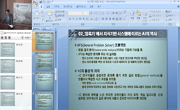Niklas Luhmann's systems thinking goes beyond Parsonian functionalism and evolves in the late 1970s and early 1980s into his systems theory with its boundaries between system and environment. His adoption of autopoiesis from biology increases the chan...
http://chineseinput.net/에서 pinyin(병음)방식으로 중국어를 변환할 수 있습니다.
변환된 중국어를 복사하여 사용하시면 됩니다.
- 中文 을 입력하시려면 zhongwen을 입력하시고 space를누르시면됩니다.
- 北京 을 입력하시려면 beijing을 입력하시고 space를 누르시면 됩니다.
https://www.riss.kr/link?id=A75058044
-
저자
Suh, Young-Chul (경성대학교 영어영문학과)
- 발행기관
- 학술지명
- 권호사항
-
발행연도
2007
-
작성언어
English
- 주제어
-
KDC
840
-
등재정보
KCI등재
-
자료형태
학술저널
- 발행기관 URL
-
수록면
201-228(28쪽)
- 제공처
-
0
상세조회 -
0
다운로드
부가정보
다국어 초록 (Multilingual Abstract)
Niklas Luhmann's systems thinking goes beyond Parsonian functionalism and evolves in the late 1970s and early 1980s into his systems theory with its boundaries between system and environment. His adoption of autopoiesis from biology increases the chance of a paradigm shift from modernity to postmodernity. As his autopoietic (social) systems are communication of difference, his Systems Theory operates as a framework that embraces both the modern or Parsonian functionalism as well as deconstructive (postmodern) elements. Although his social systems are communication of information, utterance and understanding, some critics have criticized the fact that communication is the fundamental concept of the system because communication cannot be a permanent and conceptual constituent in the system. Despite their criticisms, his social system offers a framework in which the communicative act is performed. This holistic system of Luhmann's includes postmodern elements in Wittgenstein's language games and Lyotard's differend. On the surface, paradoxical constituents of Luhmann's system seem to mar the holistic concept of the system. On the other hand, these paradoxical constituents offer some possibilities of overcoming the great divide between the modern epistemology and the postmodern one. As the modern epistemologists argue against the deconstructionists on a logocentric subject for any understanding, the scholars of both camps cannot reach any agreement. Granting such keen confrontations, Luhmann's Systems Theory offers an option to include both holistic and fragmentary constituents. In this context, Luhmann constructs a frame or system of embracing differences. It is appropriate to say that Luhmann's Systems Theory offers a way to understand human and social phenomena in the age of postmodernity and beyond.
동일학술지(권/호) 다른 논문
-
서구 민담에서 동화로, 동화에서 애니메이션으로의 변용과정에 나타나는 정치적 전유
- 새한영어영문학회
- 권혜경
- 2007
- KCI등재
-
흑인 혼의 재발견과 허스턴의 『그들의 눈은 신을 보고 있었다』
- 새한영어영문학회
- 배윤기
- 2007
- KCI등재
-
- 새한영어영문학회
- 정혜령
- 2007
- KCI등재
-
- 새한영어영문학회
- 정혜욱
- 2007
- KCI등재





 RISS
RISS DBpia
DBpia






